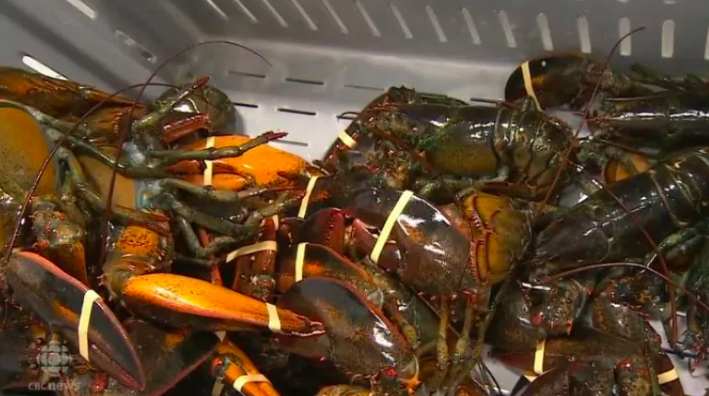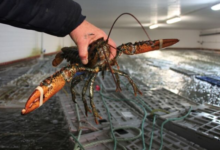Canada imposing mandatory gear marking for some fisheries in 2020
Hundreds more fishermen in Atlantic Canada are being drawn into the effort to protect endangered right whales this year.
Specially coloured fishing gear rope will become mandatory with the start of the season in every lobster and crab fishery in Eastern Canada. The rope must identify the region, species being fished and individual fishing area.
The requirement is also intended to maintain access to the U.S. seafood market by demonstrating Canada has rules comparable to those in place for fishermen south of the border.
The details were spelled out in a notice to fish harvesters that was issued by the Department of Fisheries and Oceans (DFO) on Dec. 20, and make good on a promise made by the federal government earlier in 2019.
“The new requirements are part of the government of Canada’s continuing efforts to improve tracking of gear, address ghost gear and further identify management measures threats to marine mammals, in particular North Atlantic right whales,” the notice says.
DFO says further management measures to protect the right whale will be announced in the coming weeks.
Why this is happening
The United States Marine Mammal Protection Act requires seafood imports to be caught under fishing rules equivalent to whale protection measures in place in the United States.
Gear marking is mandatory in U.S. trap fisheries.
After almost two dozen right whales have died in the Gulf of St. Lawrence over the past three years, some American politicians, fishermen and environmentalists said Canadian fishing regulations are too lax.
Without further protections, they are calling for a ban on some Canadian seafood.
Brian Guptill, a lobster fisherman on Grand Manan Island, N.B., said it’s all about keeping the border open for Canadian seafood.
“In order to prove that we’re not the problem, gear marking is the solution,” Guptill said.
The notice spells out the colour schemes to be braided into rope used in all non-tended, fixed-gear fisheries in Eastern Canada. One colour will signify the DFO region, another the species and, for lobster and crab fisheries, a third colour will identify individual fishing areas within each region.
The scheme has been designed to distinguish between Canadian and U.S. fishing gear involved in whale entanglements.
Gear marking will be mandatory for ropes attaching gear to the primary buoy. They are known as vertical lines and are seen as the threat to whales from fishing.
A tracer line — a silver transparent tape inside the full length of rope — will be permitted as an alternative.
The tracer line must identify the country, region, species and fishing area.
Who’s affected?
Mandatory gear marking is already in place for some fisheries in the Gulf of St. Lawrence.
About 150 lobster fishermen on Nova Scotia’s Eastern Shore will be among the first impacted by expanded gear marking when their season opens in April.
“They’re well behind the 8-ball getting to us. There’s some colours involved that we don’t even know the availability of,” said Peter Connors of the Eastern Shore Fisherman’s Protective Association.
He said he’s not aware of a single entanglement in his area.
“If they cause some protection, they do some good then. The fishermen will do whatever they can do to comply,” Connors said.
Other fisheries to be impacted
Fourteen fisheries will operate with new colour schemes at some point in 2020.
By landed value, the most significant species affected are lobster and snow crab.
But cod, shrimp and squid trap fisheries, longline and gillnet fisheries are also being assigned mandatory colour schemes.
The interlaced coloured strands must be a minimum of 15 centimetres in length and, at minimum, will be required at the top, middle and bottom of the vertical line, or every 27 metres.
Guptill, also president of the Grand Manan Fishermen’s Association, is resigned to what is coming.
“Any rope that isn’t marked is going to be blamed on Canada or any fishery that it isn’t marking its rope. So you’re damned if you do, damned if you don’t,” he said.
CBC








Redes Sociais - Comentários